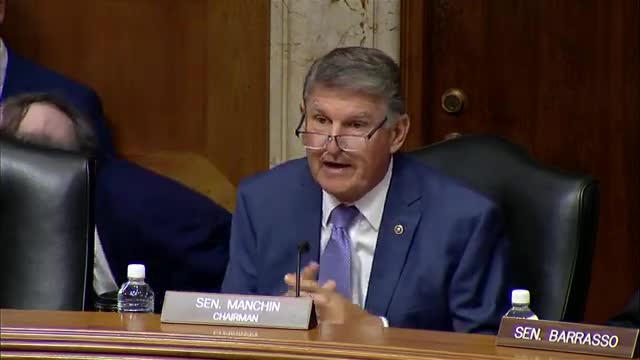Energy Independence at Stake as US Faces Critical Challenges
July 10, 2024 | Energy and Natural Resources: Senate Committee, Standing Committees - House & Senate, Congressional Hearings Compilation

This article was created by AI summarizing key points discussed. AI makes mistakes, so for full details and context, please refer to the video of the full meeting. Please report any errors so we can fix them. Report an error »

In a recent government meeting, officials discussed the current state of U.S. energy independence and the challenges facing the transition to a clean energy economy. The dialogue highlighted the United States' record energy production, positioning it as a global leader. However, concerns were raised regarding the administration's approach to energy policy, particularly in relation to critical mineral mining and federal leasing for oil, gas, and coal.
One official emphasized the necessity of mining domestic critical minerals to achieve true energy independence, arguing that without access to these resources, the U.S. cannot fully capitalize on its energy production capabilities. The ongoing conflict in Ukraine was cited as a reminder of the importance of U.S. energy leadership on the global stage.
The conversation also touched on the complexities of transitioning to renewable energy sources while maintaining a balanced energy mix that includes oil and gas. Officials acknowledged that while renewable energy is on the rise, nonrenewable sources still account for a significant portion of U.S. energy consumption.
Concerns were raised about the lengthy permitting process under the National Environmental Policy Act (NEPA), which has been criticized for delaying energy projects. A study from Stanford University indicated that a significant number of solar projects face litigation, leading to cancellations. The need for more efficient permitting processes was underscored, with calls for consistency, transparency, and timeliness in project approvals.
Overall, the meeting underscored the critical need for a strategic approach to energy policy that balances immediate energy needs with long-term sustainability goals, while also addressing the bureaucratic hurdles that hinder progress in the energy sector.
One official emphasized the necessity of mining domestic critical minerals to achieve true energy independence, arguing that without access to these resources, the U.S. cannot fully capitalize on its energy production capabilities. The ongoing conflict in Ukraine was cited as a reminder of the importance of U.S. energy leadership on the global stage.
The conversation also touched on the complexities of transitioning to renewable energy sources while maintaining a balanced energy mix that includes oil and gas. Officials acknowledged that while renewable energy is on the rise, nonrenewable sources still account for a significant portion of U.S. energy consumption.
Concerns were raised about the lengthy permitting process under the National Environmental Policy Act (NEPA), which has been criticized for delaying energy projects. A study from Stanford University indicated that a significant number of solar projects face litigation, leading to cancellations. The need for more efficient permitting processes was underscored, with calls for consistency, transparency, and timeliness in project approvals.
Overall, the meeting underscored the critical need for a strategic approach to energy policy that balances immediate energy needs with long-term sustainability goals, while also addressing the bureaucratic hurdles that hinder progress in the energy sector.
View full meeting
This article is based on a recent meeting—watch the full video and explore the complete transcript for deeper insights into the discussion.
View full meeting